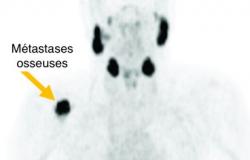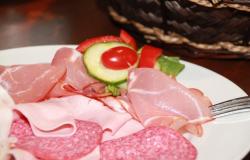
Formerly relegated to a simple scientific curiosity, the microbiota is now at the center of medical and nutritional concerns. This complex ecosystem, made up of billions of bacteria, yeasts and other microorganisms living mainly in our intestines, influences much more than our digestion. Immunity, metabolism, mental health… the promises associated with the microbiota seem endless. But do these hopes live up to the science? Through prebiotics and probiotics, often touted as the keys to optimal health, the microbiota raises as many questions as it offers solutions. To understand this environment as rich as it is complex, GQ spoke with Dr. Joelle Tubiana, endocrinologist and doctor specializing in nutrition.
What is the microbiota?
Before exploring solutions to maintain it, it is essential to understand its role. The intestinal microbiota, sometimes nicknamed “the second brain”, brings together nearly 100,000 billion microorganisms. These invisible tenants live in harmony with our body and perform vital functions: they facilitate digestion, protect against pathogens and participate in the synthesis of certain nutrients, such as vitamins B or K. In addition, they maintain constant communication with the brain, via what we call the gut-brain axis.
However, this balance can be fragile. According to Dr. Joëlle Tubiana, nutritionist, we have only scratched the surface of understanding this invisible organ. Although it is unique to each individual, it directly reflects our lifestyle, our diet and even our environment.
Prebiotics and probiotics: complementary but poorly understood roles
The words “prebiotics” and “probiotics” are everywhere, but what do they actually mean?
Probiotics, first of all, are live bacteria that we consume through fermented foods such as yogurt, kefir or even kimchi. These “good bacteria” can also be taken in the form of food supplements to strengthen or rebalance the microbiota.
At the same time, prebiotics refer to non-digestible fibers which nourish these bacteria already present in our intestines. Think of them as a natural fertilizer that promotes bacterial growth and diversity. They are found in simple foods: garlic, asparagus, bananas and even leeks.
Dr Tubiana explains that “prebiotic fibers fertilize the microbiota and are essential for maintaining its diversity, a key indicator of good intestinal health.” But despite their complementarity, modern lifestyles undermine this balance: “our diet of the 20the century reduced the diversity of the microbiota and therefore led to diseases”. Diets rich in processed foods, low in fiber, promote the impoverishment of the intestinal flora. And paradoxically, “we consume more probiotics in the form of supplements, while neglecting natural prebiotics in our diet,” underlines the expert.
Probiotics, a miracle solution?
Probiotics are often presented as a panacea, capable of curing intestinal disorders, improving mood or even strengthening the immune system. In reality, their effectiveness is nuanced. Studies show that they can be beneficial in very specific contexts: recovery after a course of antibiotics, treatment of infectious diarrhea, or relief of symptoms of irritable bowel syndrome.





